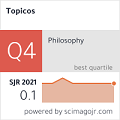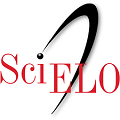La recepción de la Wissenschaft der Logik en la filosofía argentina (1932 – 1956)
DOI:
https://doi.org/10.14409/topicos.v0i42.10196Palabras clave:
Wissenschaft der Logik, Filosofía argentina, lógica, dialécticaResumen
La recepción de la Wissenschaft der Logik de G. W. F. Hegel en la filosofía argentina fue tardía y focal. A la casi nula atención al aspecto especulativo de la filosofía hegeliana durante el positivismo decimonónico, continuó un superficial interés en las primeras décadas del siglo XX que derivó en dos comentarios de la Wissenschaft der Logik: La Lógica de Hegel de M. A. Virasoro (1932) y Hegel y la dialéctica de C. Astrada (1956). Para Virasoro la obra representaba un posicionamiento lógico contrapuesto al formal con derivaciones gnoseológicas y metafísicas; para Astrada ella exponía la fundamentación del método dialéctico, el cual tenía relevancia ontológica y política. Ambos filósofos coincidieron en un interés crítico por la obra y en un privilegio exegético de la Doctrina del ser por sobre la Esencia y el Concepto. Las diferencias y las continuidades entre ambas interpretaciones conformaron la recepción inicial de la Wissenschaft der Logik en la filosofía argentina.
















